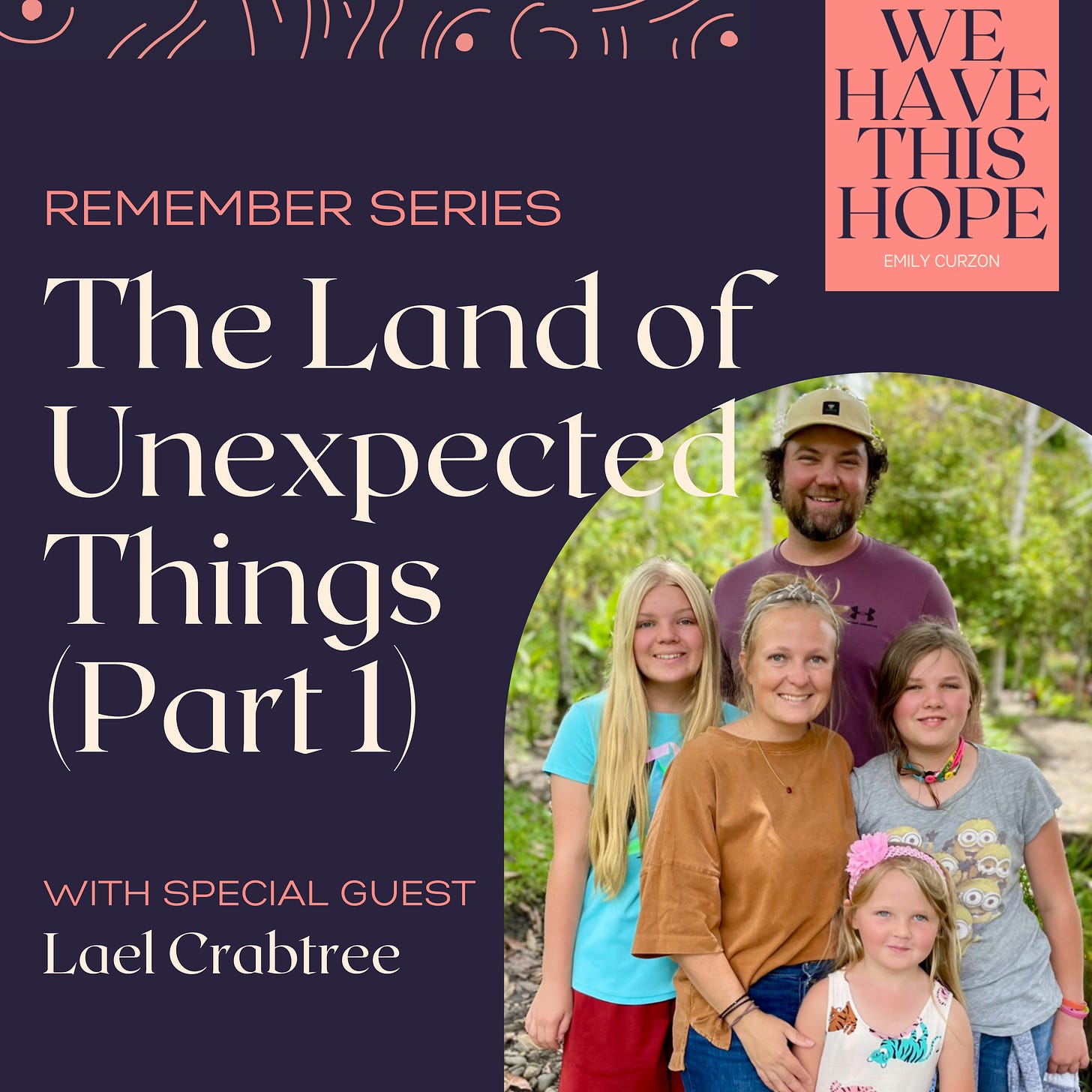Today I’m sharing my conversation with Lael Crabtree. She is an incredible storyteller and, unless you already have friends who live in the bush of Papua New Guinea (I mean, do you? that’d be a crazy coincidence), then you’ve never heard a story quite so unique and powerful. This is part one of a series on the work Lael and her family are doing because we talked for almost 3 hours during her interview and there was almost nothing to cut. Do I leave out the part about her developing an entire alphabet from a tribal language or the people responding to the gospel message for the first time or the incredible Wantakian women delivering babies on their own in the jungle?
See what I mean…
Part 1 includes the story of how she and her family decided to do tribal missions, their training and preparation for almost 4 years, and their eventual move into the jungle where they built their home, created an alphabet, taught literacy, and continued to raise their family.
As I’ve been editing and re-listening to Lael’s beautiful story, I’ve felt compelled to remind all of us that the point of story-telling, or at least this kind of gospel story-telling, is not to sensationalize an experience, garner a wider audience, or even leave those of us at home in the states wondering if we’re doing enough.
It is simply to let this incredible work of God, remembered and told by a real woman, settle in our hearts and minds. When we do this, the stories leave us changed, never in one airbud and out the other. They do work in us, by the power of the Spirit, that increases our faith and compels us to keep living in the deep hope that Christ has died, Christ is risen, and Christ will come again.
This is my prayer for you as you hear her story.
Emily
Lael & Jack work for Ethnos360 - follow along via their IG account as well
Want to see what it actually looks like in their village? reachWantakia on youtube has some drone footage as well as glimpses of the church gathered for literacy and Bible training.















Share this post